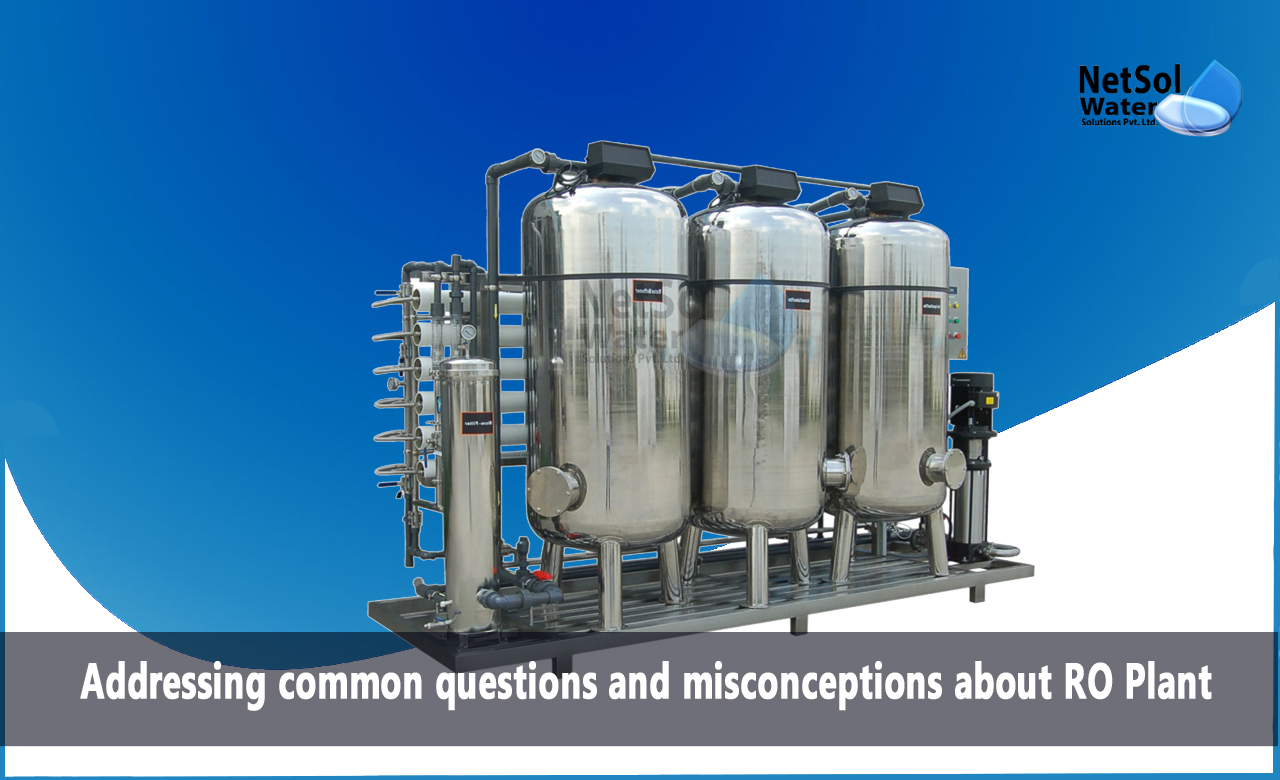Addressing Common Questions and Misconceptions about RO Plant
As reverse osmosis (RO) has grown more popular in homes and businesses, there are lingering doubts and uncertainties about potential health impacts of drinking RO filtered water.
In this article, we analyze frequently asked questions regarding RO water and health effects. Our goal is to provide science-based facts to help you evaluate health claims and make informed choices about RO systems.
Does RO Remove Essential Minerals?
RO membranes filter out most dissolved mineral ions, resulting in water with very low total dissolved solids (TDS). Some argue this makes RO water lacking in essential minerals like calcium and magnesium.
However, RO systems reduce but do not totally eliminate minerals. RO water retains 10-15% of calcium, magnesium, sodium and potassium - adequate for most healthy individuals eating a balanced diet.
RO may not be ideal for those needing high mineral intake for medical reasons. Overall, RO provides water with moderate mineral levels sufficient for most uses and people.
Is RO Water Missing Beneficial Minerals?
Beyond essential minerals, some claim RO removes trace beneficial minerals that improve health. In truth, few such mineral claims have been scientifically validated.
Moreover, few water sources naturally contain meaningful levels of beneficial trace minerals. Any that exist are likely present in concentrations too low to impact health in either tap water or RO water.
Does Low-Mineral RO Water Leach Minerals from the Body?
There is no scientific evidence that moderate-mineral RO water leaches calcium from bones or other minerals from organs and tissues. The kidneys efficiently regulate mineral levels in the blood regardless of water mineral content.
Unless you have a pre-existing condition causing a mineral imbalance, drinking recommended daily volumes of RO water should not alter healthy mineral levels in the body.
Is RO Water Too Acidic?
Properly produced RO water has a neutral pH around 7. However, storage tanks can grow biofilm that releases organic acids lowering pH slightly. Routine tank sanitization prevents this.
Low TDS in RO water can make pH more susceptible to change. But pH is regulated in the body. Drinking water pH between 6.5-8.5 is generally fine for most people.
Does RO Remove Healthy Fluoride?
Yes, RO membranes filter out fluoride along with other dissolved ions. Many tap water sources have fluoride added for dental health. RO can make tap water fluoride-free.
The loss of fluoride may be a concern for parents of young children prone to cavities. In this case, RO system manufacturers recommend post-filter fluoride re-mineralization cartridges to add fluoride back into RO water.
Does Drinking RO Water Hydrate the Body?
Hydration depends on water volume intake, not mineral content. RO water supports normal body hydration identical to tap water or any other water source.
Unless your doctor advises limiting water intake due to a specific medical disorder, drinking adequate volumes of RO water properly hydrates the body’s cells and tissues.
Is RO Water Unhealthy for Children?
RO water is perfectly safe for infants, children and teens to drink and poses no health risks. The FDA strictly regulates contaminant limits in purified bottled waters produced via reverse osmosis. RO water is widely used in baby formulas requiring extremely purified water.
For picky eaters or children with below-average mineral intakes, parents can provide mineral supplementation as needed. Overall, RO water is healthy and beneficial for developing children.
Does RO Remove Beneficial Water Minerals?
Trace minerals with alleged benefits like lithium and silica exist in concentrations too low to significantly impact health whether filtered by RO or not. Typical lithium amounts in water, for example, are thousands of times lower than therapeutic doses.
No major health organization cites lack of minerals in purified water as a significant public health concern. RO water supports sound hydration and nutrition the same as tap water.
Is Distilled Water Healthier Than RO Water?
While both remove dissolved contaminants through evaporation and filtration respectively, distilled water removes slightly more minerals than RO water.
However, extreme low-mineral water can potentially leach minerals from the body with excessive long-term consumption. RO filtration is generally considered safer and healthier long-term.
Does RO Water Cause Internal Damage?
There are anecdotal claims that low-mineral RO water washes away protective mucus membranes and causes artery damage over time. No scientific studies validate such effects.
Millions worldwide have safely consumed RO filtered water for decades with no demonstrated adverse health impacts. As with any water source, moderation is key.
The Bottom Line on RO and Health
When operated properly with routine maintenance, RO systems produce water with moderate mineral levels that supports regular hydration and nutrition for most healthy people.
While beneficial for removing contaminants, RO should not be viewed as a magical health-enhancing water. As with any purified water, RO is best consumed in moderation as part of an overall healthy lifestyle.




